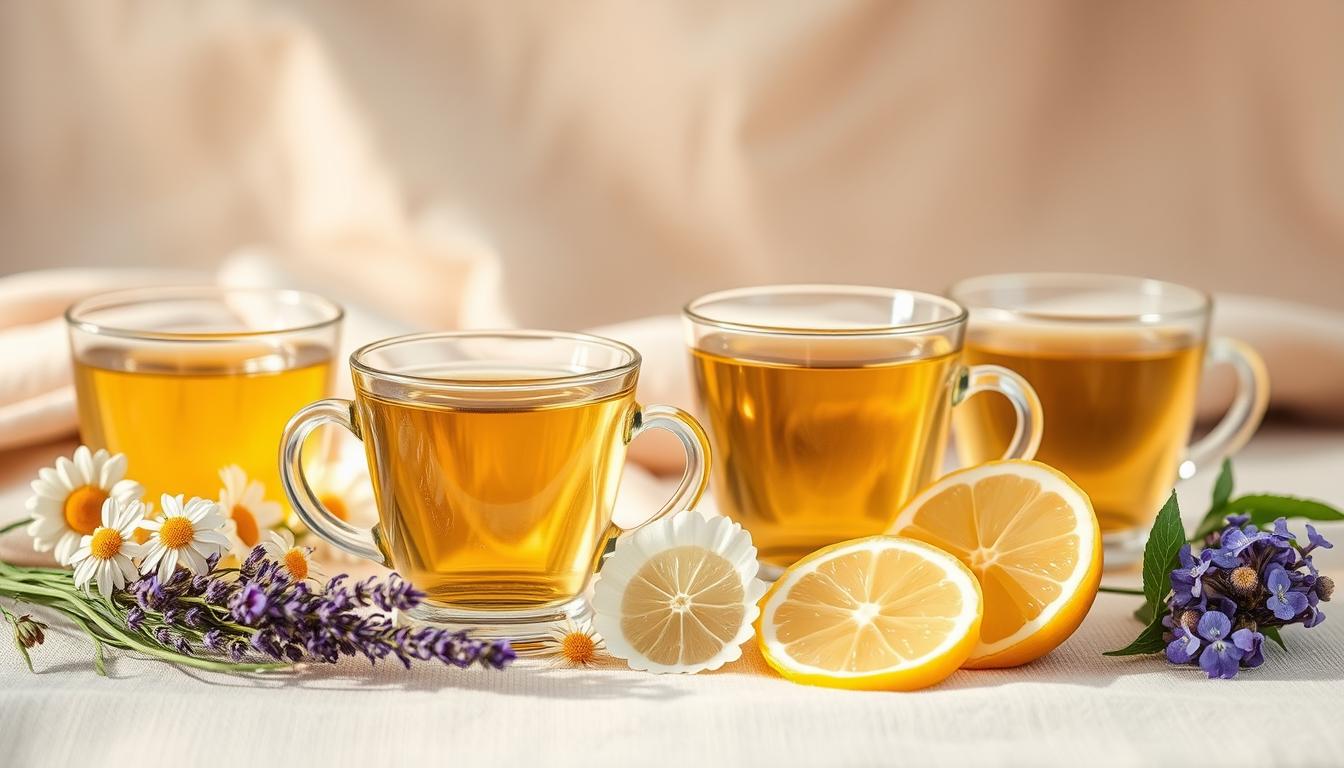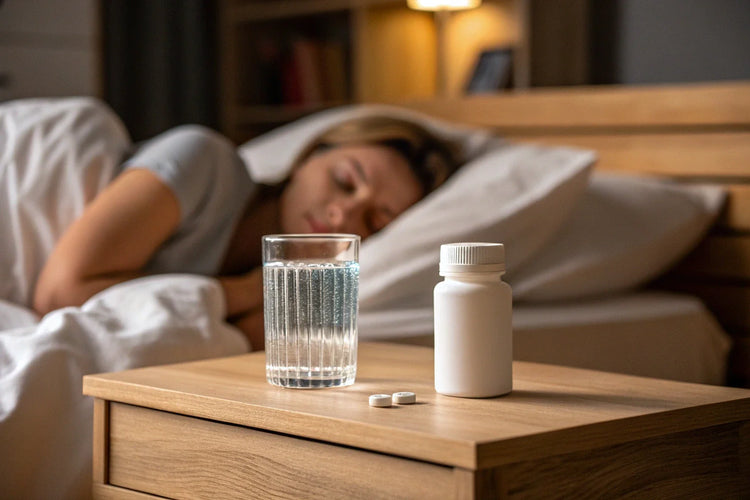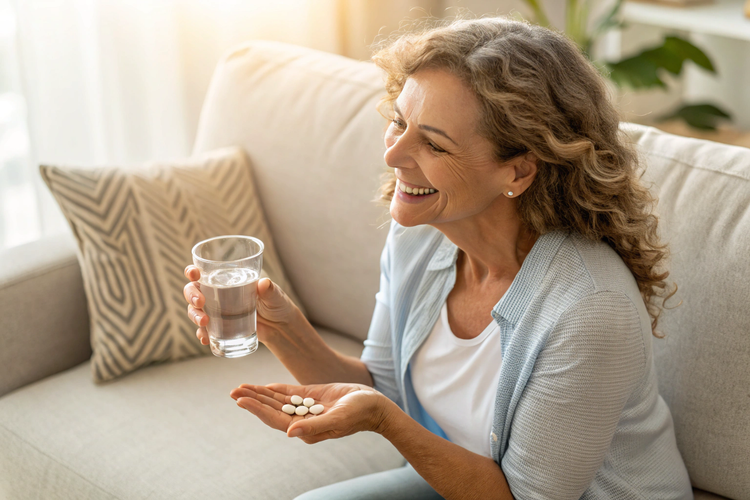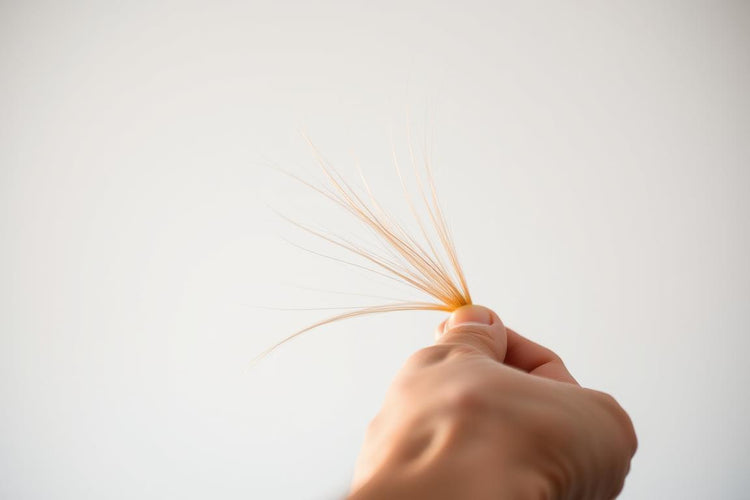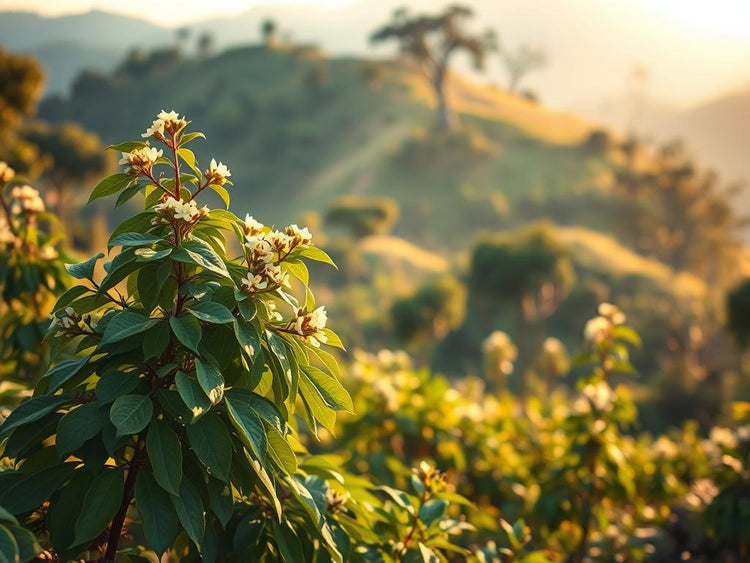Struggling to unwind after a long day? You're not alone. Millions of Americans seek gentle solutions to calm racing thoughts and ease into deeper relaxation. Nature offers some surprising allies in this nightly battle – warm beverages made from flowers, roots, and leaves that have been used across cultures for centuries.
Recent studies reveal why these aromatic infusions work. Certain plants contain compounds that interact with our nervous system, naturally dialing down stress hormones while boosting relaxation signals. Unlike harsh sleep aids, these drinks work with your body's rhythms rather than against them.
This guide focuses on six options backed by both tradition and modern science. You'll learn which blends target specific challenges like muscle tension or mental chatter. We'll break down exactly when to drink them, how to prepare them for maximum effect, and what results you can realistically expect.
Key Takeaways
-
Science explains how specific plant compounds promote relaxation
-
Different brews address unique sleep challenges
-
Proper brewing times unlock maximum benefits
-
Natural options avoid next-day grogginess
-
Timing your drink matters as much as the blend
Introduction to Sleep-Enhancing Herbal Teas
Modern life’s constant buzz makes quality rest feel like a luxury. Plant-based infusions offer a bridge between ancient wisdom and modern needs, blending tradition with science-backed results. Over 30% of adults now explore caffeine-free options to support their nighttime routines.

What You’ll Discover Here
This guide breaks down six plant-based beverages with proven relaxation benefits. You’ll learn how specific flowers and roots interact with brain chemistry to:
-
Reduce nighttime awakenings
-
Quiet mental chatter
-
Ease muscle tension
"Clinical trials show certain botanicals increase GABA production by up to 40% – a key neurotransmitter for relaxation."
Journal of Ethnopharmacology (2023)
Why Nature’s Solutions Matter
Pharmaceutical options often come with next-day fog or dependency risks. Botanical brews work differently:
|
Herb |
Key Benefit |
Active Compound |
|---|---|---|
|
Reduces anxiety |
Apigenin |
|
|
Improves sleep depth |
Valerenic acid |
|
|
Lowers heart rate |
Linalool |
Traditional Chinese Medicine has utilized these plants for millennia. Modern research confirms their value – one study found nightly tea drinkers fell asleep 19 minutes faster than non-drinkers. Whether replacing evening coffee or enhancing existing routines, these infusions offer gentle support for tired minds and bodies.
Understanding Insomnia and Sleep Challenges
Tossing and turning at 2 AM? You're part of a growing group. Nearly 1 in 3 adults report regular nighttime struggles, with racing minds often outranking physical discomfort as the main culprit.
When Rest Becomes Elusive
Common nighttime battles include:
-
Mental replay of unfinished tasks
-
Body tension resisting relaxation
-
Emotional weight from daytime stress
These patterns often feed each other. Poor rest weakens emotional resilience, making tomorrow's challenges feel heavier. Over time, this cycle can impact immune strength and decision-making abilities.
The Stress-Sleep Tug-of-War
Anxiety acts like an overactive alarm system. Cortisol spikes keep hearts racing when bodies should wind down. Many develop sleep dread – worrying about restlessness hours before bedtime.
"Chronic stress reduces deep sleep phases by 30%, according to recent sleep lab studies."
National Sleep Foundation Report
Modern habits amplify these issues. Blue light from devices delays melatonin production. Irregular meal times confuse internal clocks. The good news? Small changes in evening routines often yield big improvements.
Herbal Teas for Better Sleep and Insomnia
The secret to peaceful nights might be in your teacup. Unlike traditional brews from tea plants, these caffeine-free infusions use flowers, roots, and leaves known for their calming properties. Cultures worldwide have turned to these botanical blends for generations, and modern science now confirms their value.
Nature’s Relaxation Chemistry
These beverages work by interacting with brain chemistry. Key compounds like apigenin and valerenic acid boost GABA activity—a neurotransmitter that quietens mental chatter. This natural process helps ease tension without next-day fog.
Research shows regular drinkers experience multiple advantages:
-
Falling asleep 20% faster
-
Fewer midnight awakenings
-
Improved sleep depth
"Plant-based infusions enhance sleep architecture more gently than synthetic options."
Sleep Medicine Reviews (2023)
The ritual itself contributes to their effectiveness. Sipping a warm cup signals your body to unwind, creating a powerful mind-body connection. Together, biochemical and behavioral factors make these brews a smart choice for sustainable rest.
Chamomile Tea: A Time-Tested Sleep Remedy
When daylight fades and minds race, a steaming cup of golden liquid offers ancient comfort. Chamomile tea has warmed hands and calmed spirits since Egyptian times, now validated by modern labs as more than folklore.
Nature’s Nighttime Key
The flower’s power comes from apigenin – a compound that locks onto brain receptors like a key fitting a lock. This interaction:
-
Dials down mental static
-
Eases muscle stiffness
-
Triggers drowsiness signals
Proof in the Petals
Multiple studies showcase chamomile’s versatility. New mothers drinking it daily reported 42% less fatigue in a 2016 trial. Seniors experienced fewer midnight wake-ups and deeper rest cycles.
|
Group |
Duration |
Improvement |
|---|---|---|
|
Postpartum women |
14 days |
Reduced fatigue & depression |
|
Adults 65+ |
28 days |
Better sleep quality |
|
General population |
Single serving |
Faster sleep onset |
"Apigenin demonstrates comparable binding affinity to prescription sleep aids, without dependency risks."
Pharmacognosy Review
While generally safe, those allergic to daisy-family plants should consult a doctor. Steep 5-7 minutes for maximum effect – patience rewards with sweeter dreams.
Lavender and Valerian Root: Nature's Soothing Ingredients
Evening rituals gain new power when blending fragrant florals with earthy roots. These two botanical heavyweights team up to address both mental restlessness and physical tension.
The Science Behind Floral Relaxation
Lavender tea works like nature's aromatherapy session. Its linalool compound lowers cortisol by 24% in stressed adults, per University of Miami research. This purple bloom also activates the parasympathetic nervous system – your body's "off switch" for daytime stress.
New parents find particular value here. A 2022 trial showed mothers drinking lavender infusions fell asleep 35% faster than placebo groups. The floral notes themselves become part of the wind-down ritual, signaling it's time to decompress.
Rooted in Restful Results
Valerian root offers deeper intervention for persistent restlessness. Studies reveal its compounds boost GABA levels similarly to prescription options, but without next-day impairment. Nearly 9 out of 10 users report better sleep continuity within two weeks.
Consider these practical tips:
-
Steep valerian for 10+ minutes to release full benefits
-
Pair with honey to soften its earthy flavor
-
Start with half-strength brews to assess tolerance
"Valerian demonstrates comparable efficacy to mild sedatives in sleep lab trials, with far fewer adverse events."
Current Neuropharmacology Study
|
Consideration |
Lavender |
Valerian |
|---|---|---|
|
Best For |
Stress-related restlessness |
Persistent sleep struggles |
|
Notable Effects |
Calms mental chatter |
Deepens sleep phases |
|
Timing Tip |
Drink while preparing for bed |
Consume 1 hour before bedtime |
While generally safe, valerian may cause vivid dreams in sensitive individuals. Researchers recommend cycling usage – three weeks on, one week off – for sustained effectiveness.
Exploring Other Herbal Tea Options
While chamomile and lavender get most of the spotlight, nature's apotheary holds deeper treasures. Three botanical powerhouses stand out for their unique relaxation benefits and scientific backing.
Hidden Gems for Restful Nights
Passionflower tea works like nature's calming agent. Its special compounds bind to brain receptors, easing anxiety without morning fog. Research shows even one cup improves sleep quality within hours.
Lemon balm brings citrusy brightness to bedtime routines. Studies comparing it to antidepressants found similar mood-boosting effects. Participants reported better stress management and deeper rest cycles.
Tailored Solutions for Different Needs
Magnolia bark offers ancient wisdom meets modern science. Its active compound, honokiol, helps people fall asleep faster by targeting GABA receptors. Traditional Chinese Medicine practitioners have used it for millennia.
Each option addresses specific challenges:
-
Passionflower: Best for racing thoughts
-
Lemon balm: Ideal for mood-related restlessness
-
Magnolia: Effective for stubborn sleep delays
These brews prove that sometimes the best solutions grow quietly in nature's garden. Their varied flavors and mechanisms let you customize your wind-down ritual.

